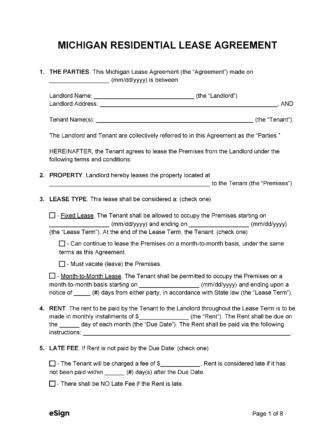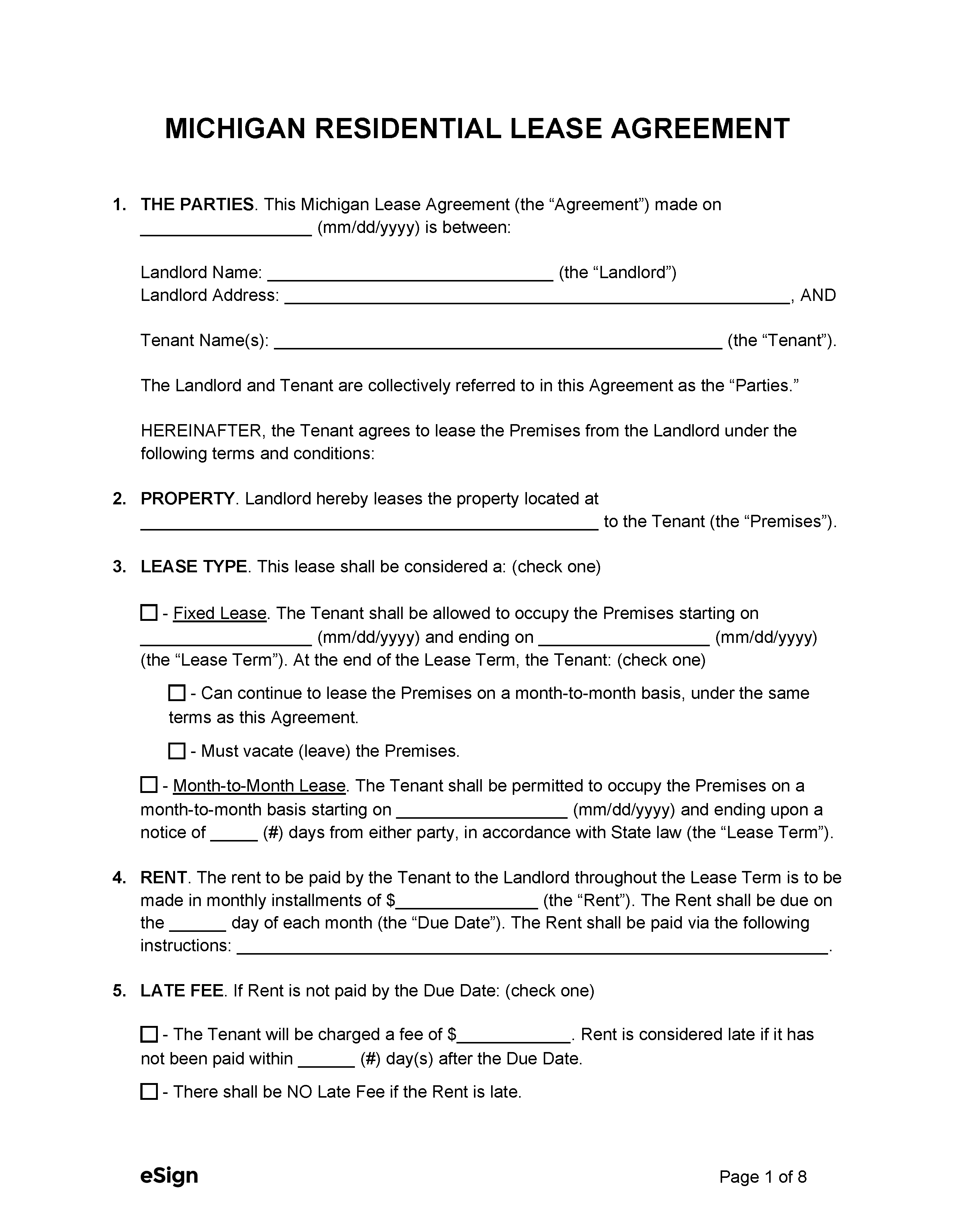Lease Agreements: By Type (6)
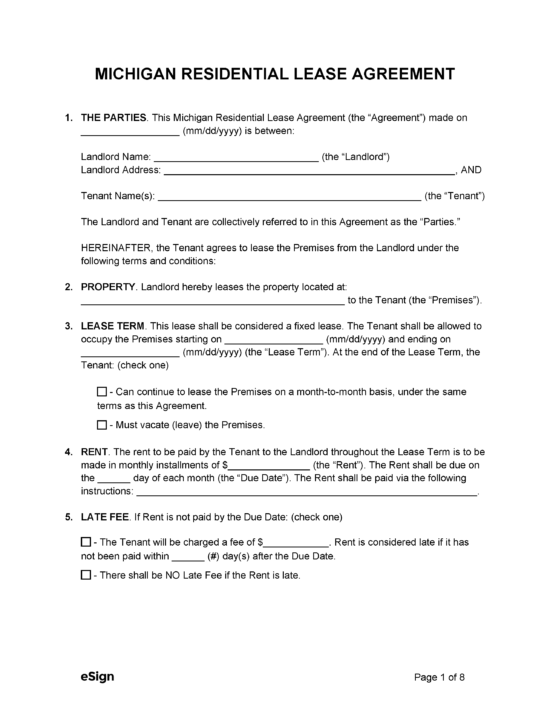 Standard (1-year) Lease Agreement – This residential lease has a term of one year, typically with the option to renew. Standard (1-year) Lease Agreement – This residential lease has a term of one year, typically with the option to renew.
Download: PDF |
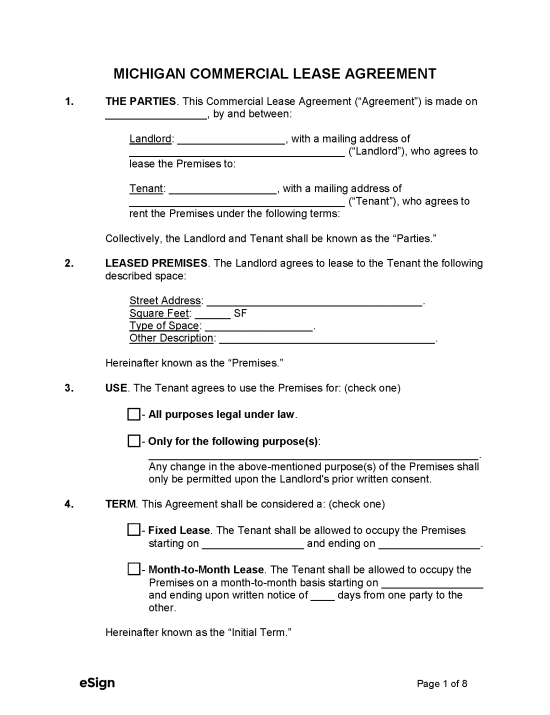 Commercial Lease Agreement – This lease agreement enables a landlord to rent out real estate to tenants for commercial use. Commercial Lease Agreement – This lease agreement enables a landlord to rent out real estate to tenants for commercial use.
Download: PDF, Word (.docx), OpenDocument |
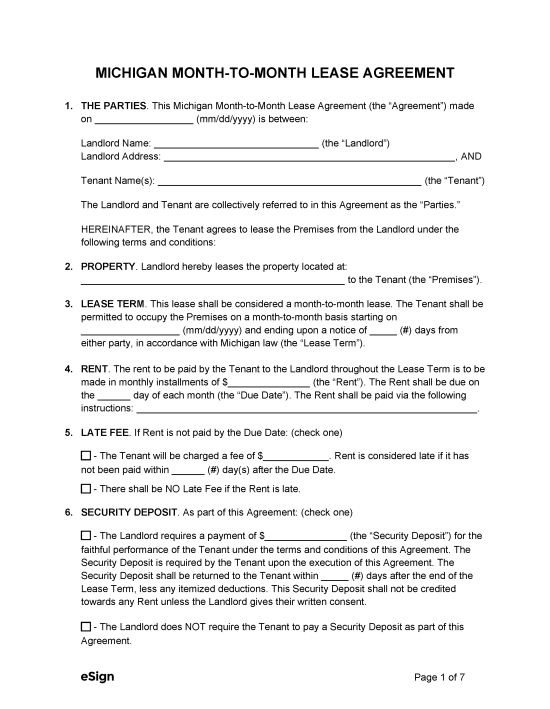 Month-to-Month Lease Agreement – A monthly lease contract renews every month until terminated by the landlord or tenant. Month-to-Month Lease Agreement – A monthly lease contract renews every month until terminated by the landlord or tenant.
Download: PDF, Word (.docx), OpenDocument |
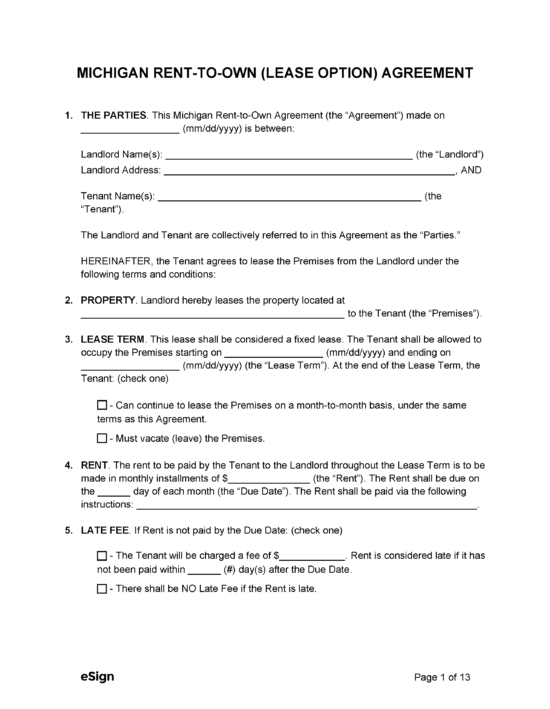 Rent-to-Own Agreement (Lease Option) – A rent-to-own lease provides the tenant with the option to purchase the property under certain conditions. Rent-to-Own Agreement (Lease Option) – A rent-to-own lease provides the tenant with the option to purchase the property under certain conditions.
Download: PDF |
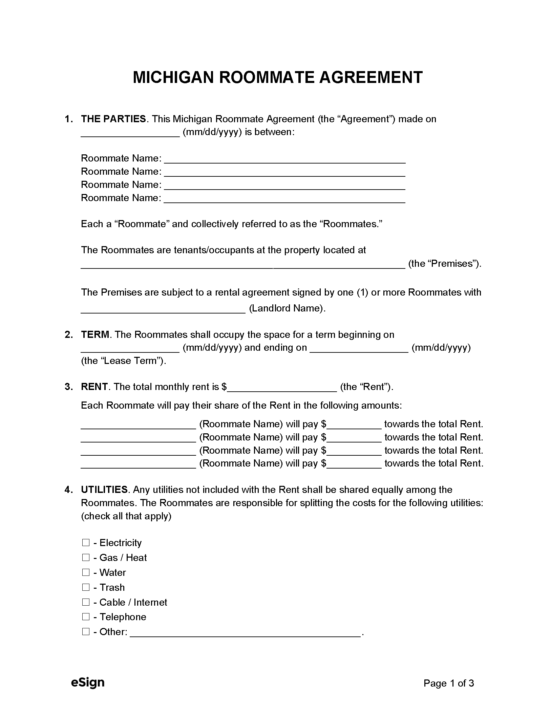 Roommate Agreement – A roommate agreement is between two or more individuals that establishes the rules of their shared rental property. Roommate Agreement – A roommate agreement is between two or more individuals that establishes the rules of their shared rental property.
Download: PDF, Word (.docx), OpenDocument |
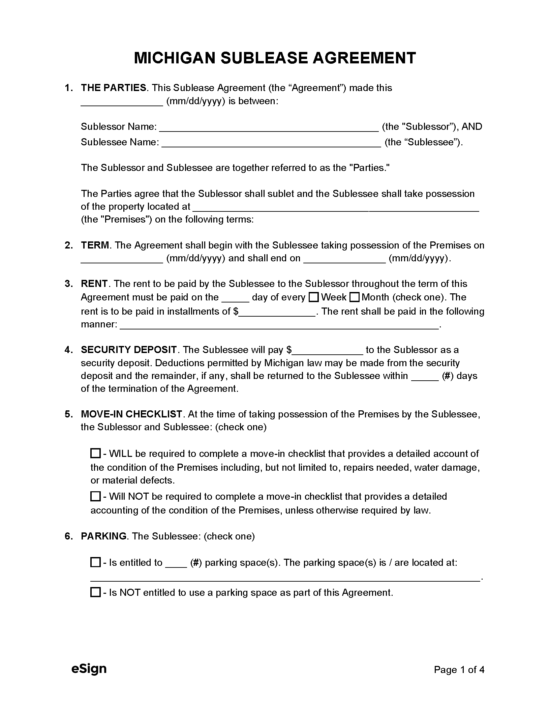 Sublease Agreement – A sublease is between a tenant and a sublessor who has agreed to rent all or a portion of the rental property. Sublease Agreement – A sublease is between a tenant and a sublessor who has agreed to rent all or a portion of the rental property.
Download: PDF, Word (.docx), OpenDocument |
Required Disclosures (5)
- Address for Notices – Leases must include the name and address where notices can be sent by the tenant.[1]
- Domestic Violence Victims – A disclosure must be provided to tenants stating that if they believe they are in danger of being a victim of domestic violence, they will be released from their obligation to pay rent.[2]
- Inventory Checklist (PDF) – Landlords must provide two blank inventory checklists before tenancy begins so the tenant can take note of the condition of the property.[3]
- Lead-Based Paint Disclosure (PDF) – In accordance with federal law, a lead-based paint disclosure form must be delivered to all tenants who are renting a property constructed prior to the year 1978.[4]
- Security Deposit Notice (PDF) – This security deposit notice must be provided to all tenants who have been asked to put down a security deposit before renting residential property.[5]
- Truth in Renting Act – Lease agreements must a) state the name and address where notices should be sent and b) contain the following statement[6]:
“NOTICE: Michigan law establishes rights and obligations for parties to rental agreements. This agreement is required to comply with the Truth in Renting Act. If you have a question about the interpretation or legality of a provision of this agreement, you may want to seek assistance from a lawyer or other qualified person.”
Security Deposits
Maximum Amount ($) – A security deposit cannot exceed one and a half months’ rent.[7]
Collecting Interest – Collecting and distributing interest from security deposits is not mentioned in state law.
Returning to Tenant – A landlord has 30 days to return the security deposit to the tenant at the end of the lease.[8]
Itemized List Required? – Yes, if the landlord plans to use all or a part of the security deposit for repairing damages, an itemized list must be sent to the tenant along with any balance remaining.[9]
Separate Bank Account? – No, state law only requires landlords to hold security deposits at a “regulated financial institution.”[10]
Landlord’s Entry
General Access – State statutes do not specify how much notice a landlord must give their tenant before accessing the property.
Immediate Access – Landlord access in emergency situations is not mentioned in state law.
Rent Payments
Grace Period – There are no laws stating that a landlord must wait a certain number of days before charging a late fee.
Maximum Late Fee ($) – Michigan statutes don’t mention a maximum late fee amount.
Bad Check (NSF) Fee – If a tenant’s rent check bounces, they may be charged a $25 fee on top of the total rent amount if paid within 7 days or a $35 fee if payment is made within 30 days.[11]
Withholding Rent – Tenants may withhold rent and deposit it into an escrow account if a government agency suspends the property’s certificate of compliance due to unsafe or unhealthy living conditions.[12]
Breaking a Lease
Non-Payment of Rent – Tenants who fail to pay rent may be served a notice to quit giving them seven days to pay or vacate the premises.[13]
Non-Compliance – As long as it’s written in the lease agreement, the landlord may terminate a tenancy for non-compliance by providing 30 days’ notice.[14]
- Exception: A tenant who causes a non-compliance that results in a health hazard or serious damage to the property can be served a 7-day notice to quit.[15]
Lockouts – Tenants who have been prevented access to their rental property may be entitled to recover monetary damages in addition to gaining re-entry.[16]
Leaving Before the End Date – A landlord’s remedies when a tenant abandons the rental property is not covered by state law.
